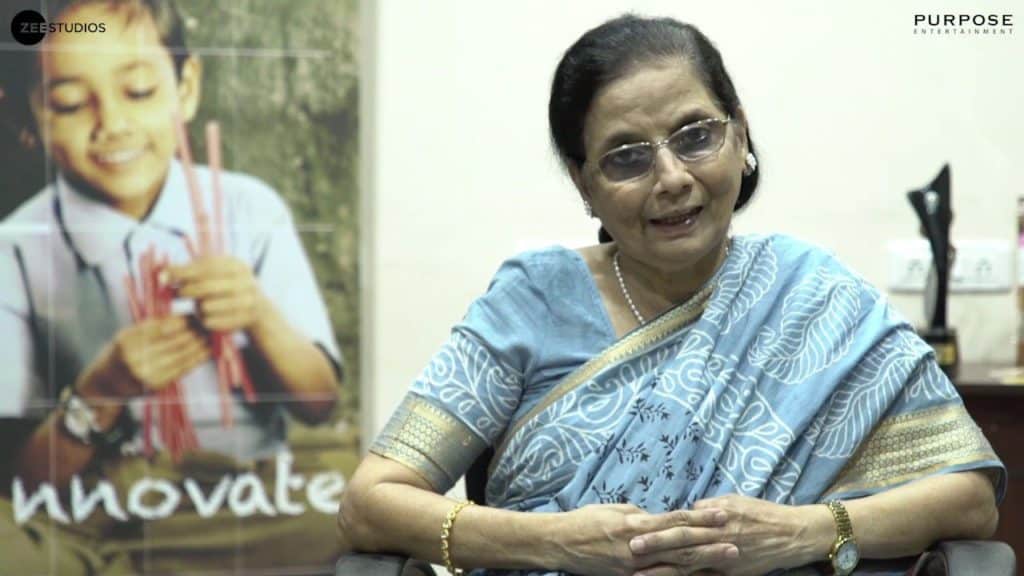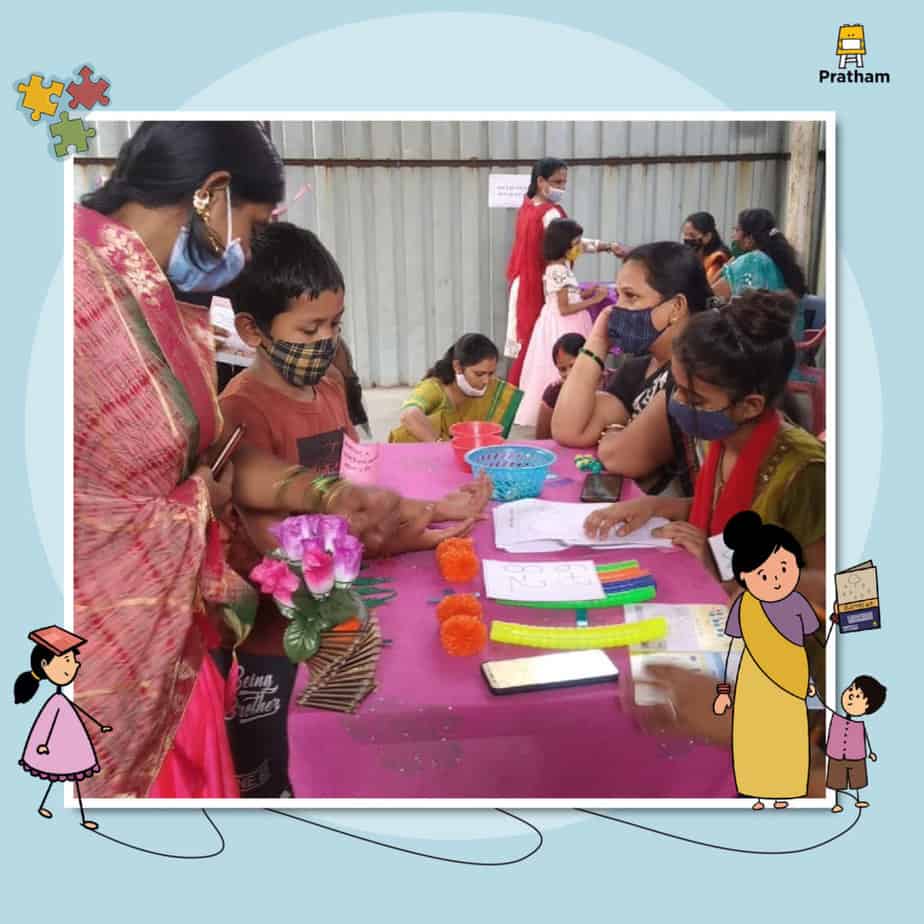As summer vacations come to a close, parents are eagerly awaiting the start of a normal school year after the past two filled with disruptions. COVID-19 has meant a sea of changes to education in Mumbai, and this school year will be the chance for parents and teachers to adapt and recover.
The experience, however, has not been equal across the board. Migrants and low-income families that faced job losses often did not have the tools to seamlessly adapt to online education, and in many cases, could not afford to keep paying the school fees. And while middle and high-income families found it easier to switch to online school, they too have voiced concerns about the learning and social skills loss.
The country-wide National Achievement Survey (NAS) conducted in November 2021 showed that the situation is particularly bleak in Mumbai. Mumbai suburban district ranked the worst in learning outcomes in the state, across subjects of mathematics, language, science, social science and English. Only 28.8 percent of 10th grade students and 34.4 percent of 8th grade students in the district could pass the survey test.
The island city fared considerably better. While 61.2 percent of 3rd grade students in the southern district are proficient or advanced in levels of understanding, the number was only 36.3 percent in the suburbs.
Pratham is one of the foremost organisations working to improve the quality of education in Mumbai and the country since 1994, particularly for those without access to high-cost institutions and tools. Farida Lambay is one of its co-founders, who has worked in the field since before it was first established to provide education to the children in the slums of Mumbai.
Below is an edited interview with her.

Could you tell us about patterns in admissions among children in Mumbai? This year the BMC is running the Mission Admission campaign, and has a goal to admit 1 lakh new students into the system.
At Pratham, we found that enrollment levels had reached 98% country-wide and 97% in Mumbai before COVID. That’s a great achievement, but we should also be looking at attendance. On any given day only 66-68% of children attend school. In Mumbai, these are children that are regularly irregular, due to illness, seasonal migration to their villages or forced migration, when their houses are demolished to make way for development projects and they have to move elsewhere. The remaining 3% are whom you may call working children, who don’t necessarily go to school every day.
Poor attendance has been accentuated by COVID, as we saw in the short time schools had reopened from February.
Has COVID affected enrollment in schools?
Many children going to private unaided schools have shifted to municipal schools, increasing enrollment in them by 45,000. But because many families haven’t been able to pay the fees for two years, the schools aren’t giving them leaving certificates (LC) or their results. Without that, no other school, whether private or public, will admit them.
The children are left in a Catch-22 situation; they want to migrate to public schools because they find it easier or closer, but they can’t. The government needs to work out a way to intervene, because you cannot reject any child an education due to financial considerations under the Right to Education (RTE) Act.
The dropout rate has increased in the higher grades. Parents of students in the 9th and 10th in private schools think it’s better they stay at home or go to a government school, and the boys are much more at risk here.
To give an example, Muslim parents prefer their girls in school because it’s a safe place. Whereas, they may withdraw their boys for work or other reasons, and they may then get into antisocial elements. This is an area which I personally feel disturbed about and would like to work on.
How has COVID affected children’s learning?
Their learning has frozen in time. Children who were in the 3rd grade are technically in the 5th now, but they haven’t learnt to their grade’s level. This is more dangerous in the higher classes, because the intensity and complexity is increased.
Three months back, Pratham and the BMC tested about three lakh children with a basic learning tool, called the ASER tool. All the children, regardless of grade, were given a 2nd grade test to find the baseline. Almost 30,000 children in 1st and 2nd grade did not know how to read and write, but that wasn’t surprising.
The reality is that children were two years behind even pre-COVID. The ASER result shows that 34-37% of children in 5th grade are at the 3rd grade level. After COVID, the situation is much bleaker.
What was the BMC’s response and were the parents able to cope?
The silver lining in all this is that the BMC has done an amazing job keeping the teachers and the corporation connected to the children online. They made sure that the textbooks reached children, even if many parents didn’t know what to do with the textbooks.
COVID has taught us that instead of children going to school, the school has to come to the child. For example, the Maharashtra government and BMC organised pre-school melawas (gatherings) for school readiness, so mothers understand preschool, their role and how to motivate children. Similar melawas will be held all over the state, and we’re expecting at least 4 lakh mothers.
Parents have become very important stakeholders. Mothers looking after their children’s educational needs have become the mainstay during COVID. We worked with almost 40,000 mothers, giving them educational messages, worksheets and more.
Many young parents are now educated, at least till the 10th grade, and want their children to study. It’s not that poor people don’t care for education, it’s just that our system doesn’t give them the opportunities.

Are automatic promotions, where the schools aren’t allowed to fail students and make them repeat a grade, a good thing?
Automatic promotions have never been good. But the spirit behind it in the RTE Act was to not label any child as a failure, but keep them under observation because they’re at a different level. But it’s gotten converted into automatic promotion. I think it has to be worked on.
How are the schools and BMC going to deal with the learning loss?
As Pratham, we’re working with the government of Maharashtra towards ‘catching up’ (by students). It will start with a basic assessment to find out what levels the children are at. Then in the next 3-4 months, the teachers must devote themselves to making up for the learning loss, leaving aside the syllabus and subjects like history, geography, etc. The focus should be on basic language and math skills, appropriate to each child’s level.
We are sharing our ‘Kamal methodology’ for teaching at the right level with the governments and BMC. Pratham’s role will not be teaching at school, but we will be a link between the teachers and the community, giving parents the input of what is being learned in the school.
How have children from higher income families managed schooling during the pandemic?
Everybody is talking about how online education has been hard, in the sense that it cannot substitute in-person teaching. But higher-income families have managed better, because they have better access – to BYJU’s classes, a tablet, one room completely dedicated to children, etc. They have the infrastructure, income, access, and readiness, which gives them a head start. They may already know how to join a Zoom link, but for poor people, everything has to be learned and that takes time.
The ASER report found that 87% of people have smartphones, but only 45-50% can access it – because each family has one which the father generally takes. These are very practical difficulties that lower-income families face. When children from these families get good quality education and support, both at home and school, they generally do well too.
Read more: Why do so many seats reserved under the Right To Education (RTE) Act go vacant?
Why is there a difference in the standard of education in Mumbai’s municipal and private schools?
It’s very obvious. In private schools like Ambani or St. Joseph school, where the children of middle class and high end families go, the quality is ensured. Whereas in municipal schools where children from slums go, there’s always the myth that it’s free, so it’s not of good quality.
Things have changed now, even in municipal schools. There are 200 new Mumbai public schools (MPS), attached to CBSE and other boards, for which the teachers have been trained. The results are very good. Admissions have increased, there’s a waiting list and children are happy. The only problem is that they’re only 200 and all are English medium.
A lot of students go to tuitions outside of schools from early grades. Why is this so?
Due to COVID, the number of students going to tuitions has doubled. It’s education that is available in the community, with teachers from the community. Parents felt it’s better for their kids to do something.
Tuitions are helpful, because it can help fill in the gaps if the parents aren’t well educated or cannot give their children time. Teachers cannot teach 60 children at a time in one class. It’s a scaffolding on the gaps and it’s become the norm of the society, not only among the poor. High-income families book tuition teachers when the child goes into the 8th grade. And now they have online classes, like Khan Academy and BYJUs. They are good, but they also tell schools and colleges they don’t have to do anything much. Tuitions are a whole industry now.
What is your opinion about online education?
Digital platforms are here to stay. They will not substitute teachers, but especially since we work with 6,000 people at Pratham, we find that our reach with the children is much better. You can digitise stories, talk and connect with the children even if it’s not safe to go into the community. To have a digital platform, which is child-friendly, is only going to help.